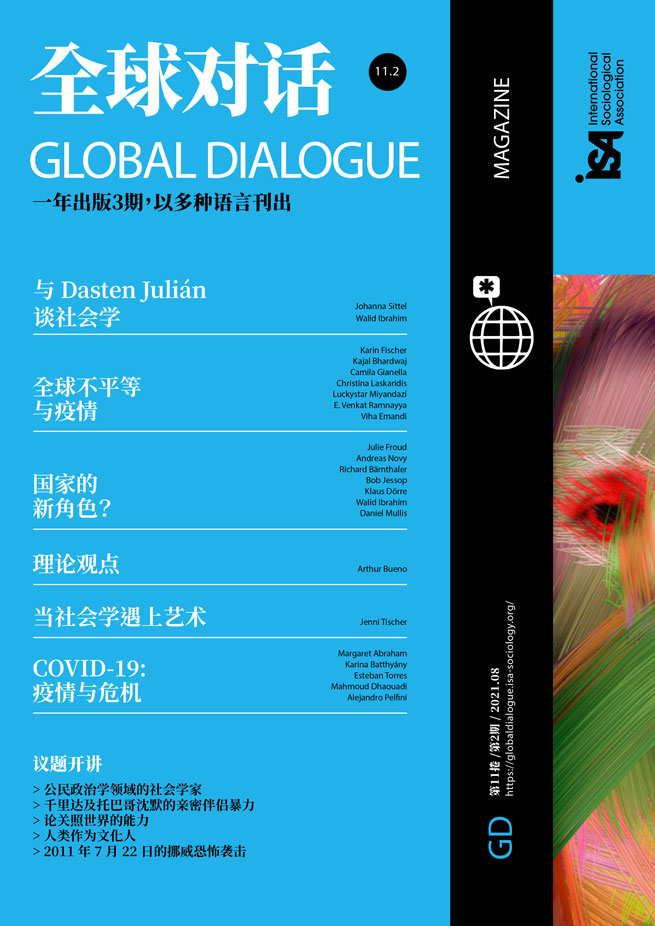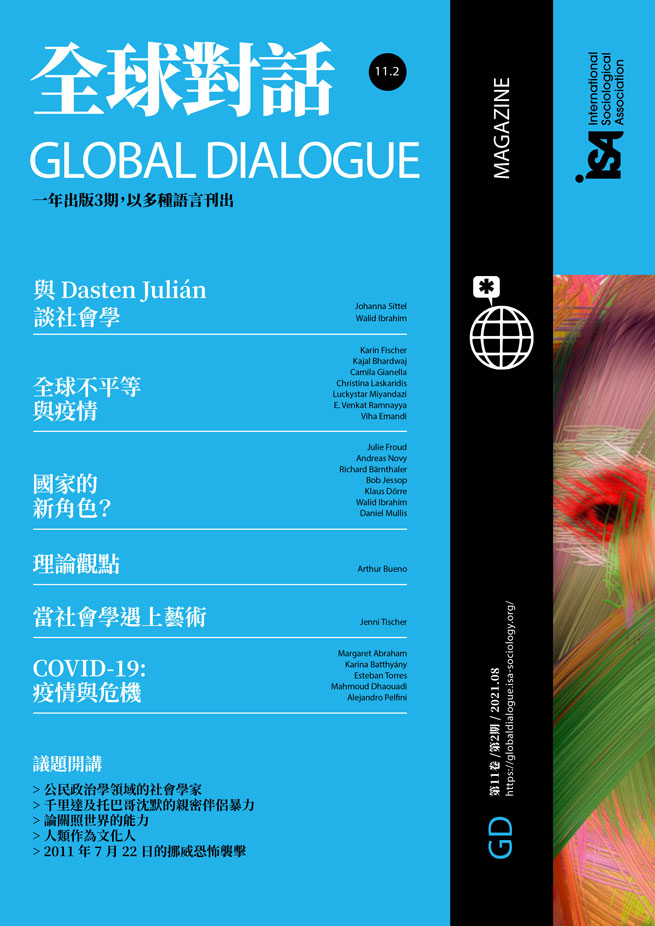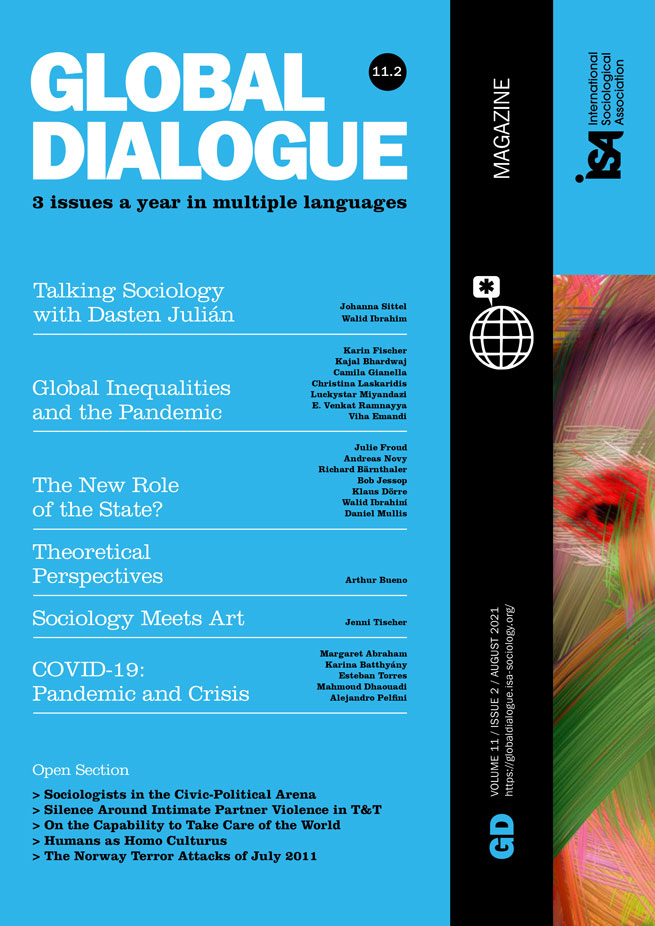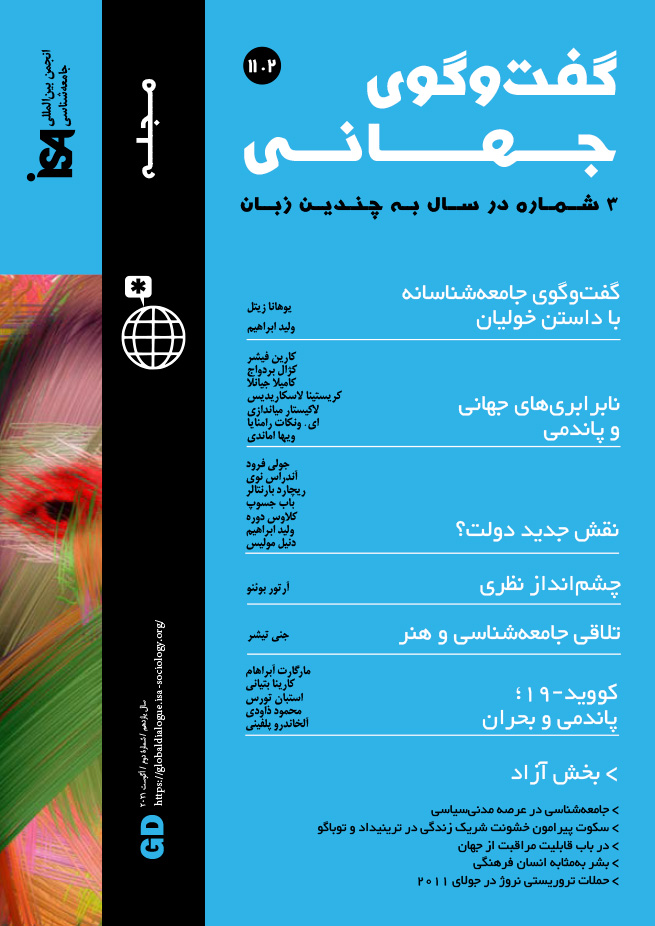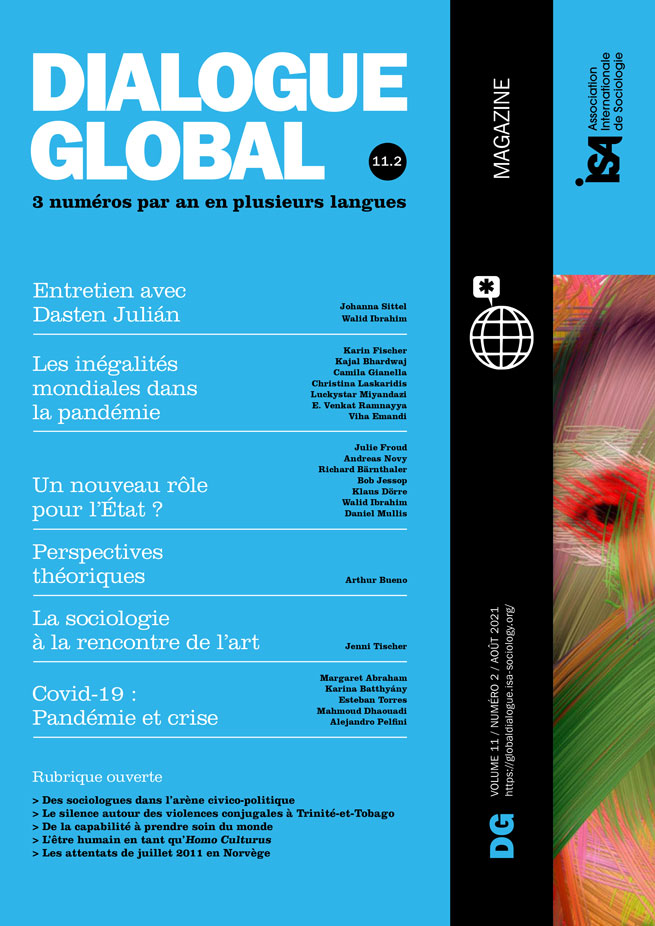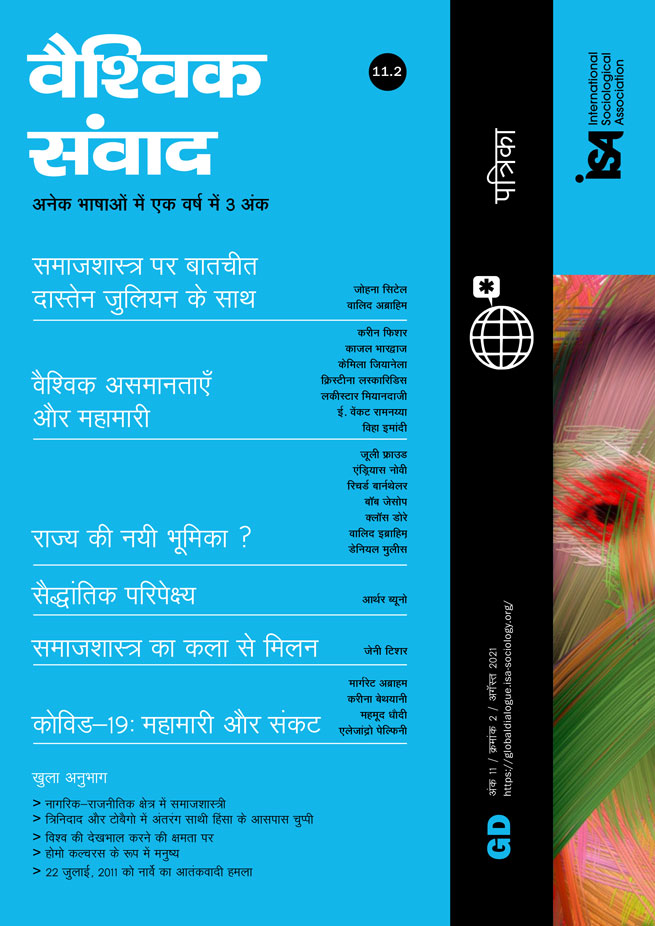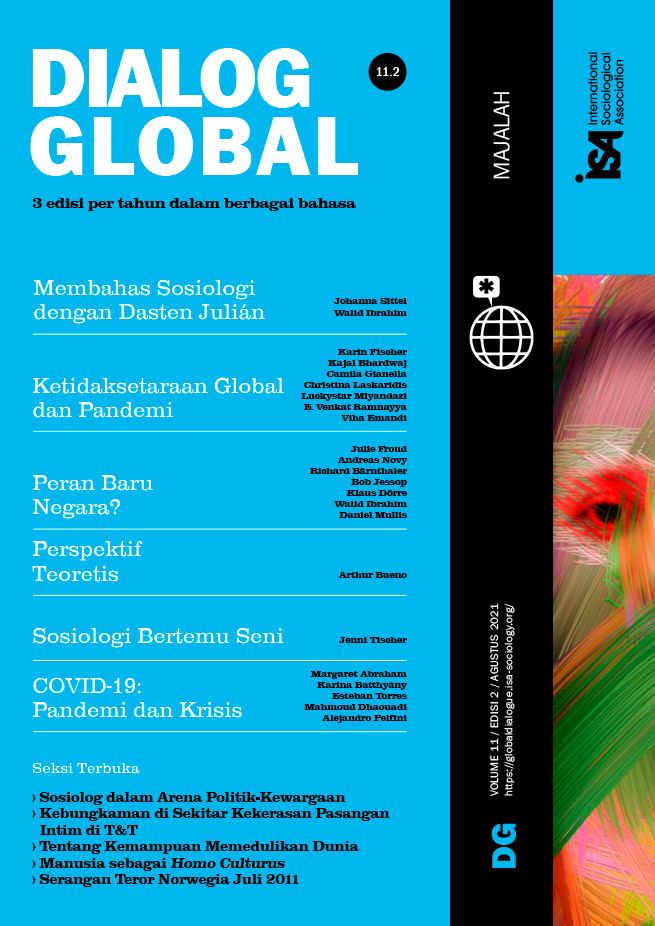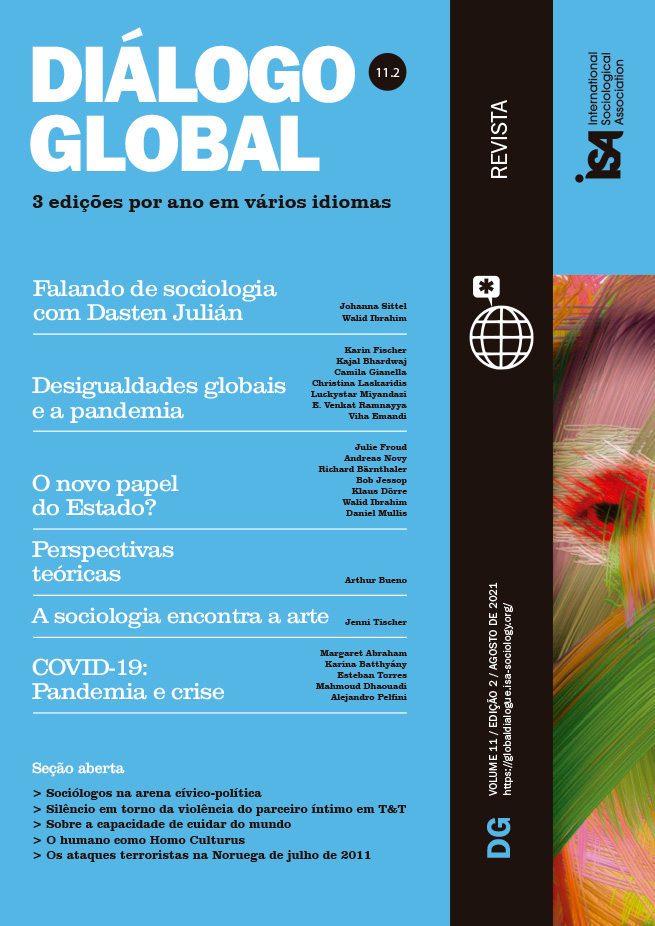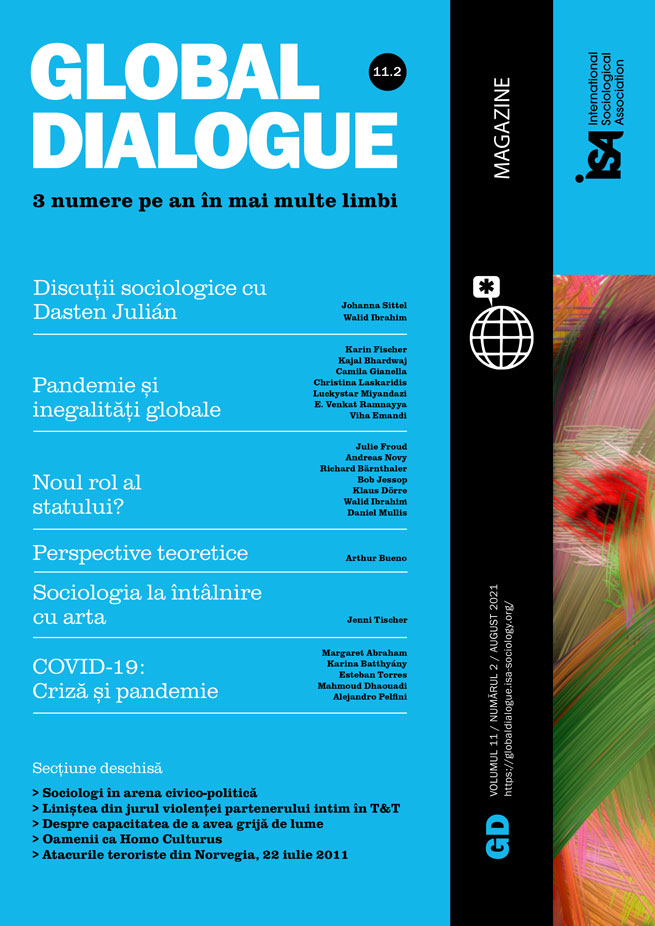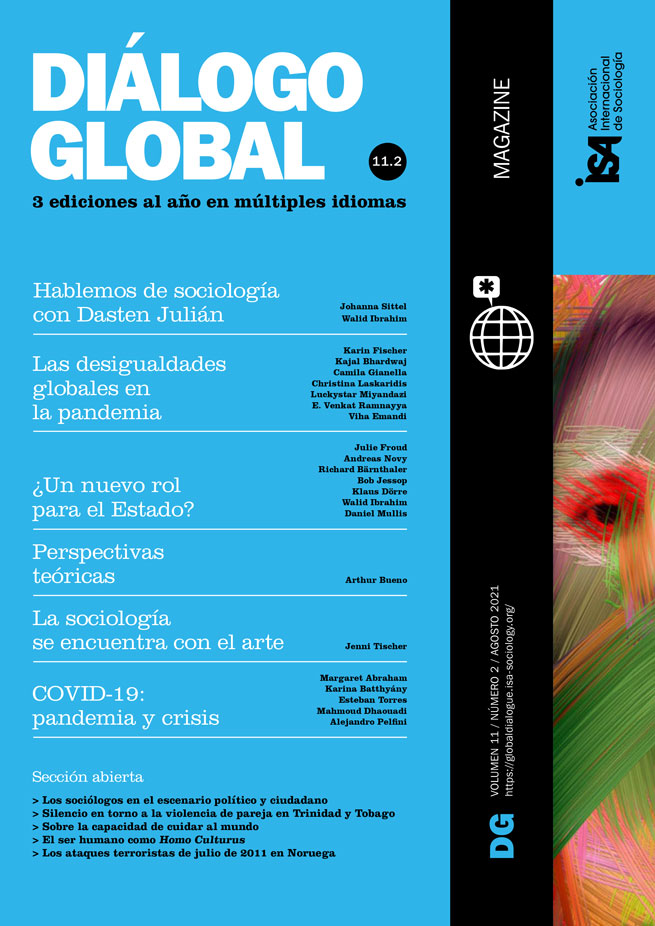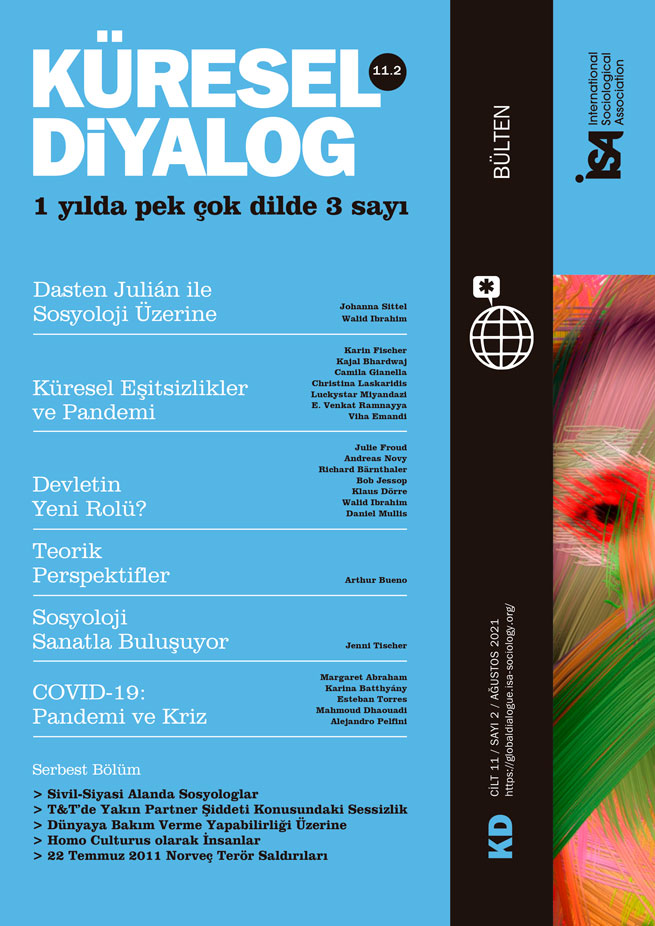On the Capability to Take Care of the World

June 25, 2021
The COVID-19 pandemic has nourished various discussions on the “world after Corona” and the “future we want.” The idea is that the pandemic is not only a tragic consequence of neoliberal capitalism and its inherent overexploitation of nature (e.g., deforestation): the pandemic also offers the opportunity to rethink our society and the ways in which it is organized. However, there is no agreement on the envisioned future. Some push for “inclusive green growth” and a Green Deal promoting “green jobs.” The focus here is on technological innovation to achieve environmental sustainability without changing people’s lifestyle (e.g., consumerism) or capitalist structures (e.g., the power asymmetry between employers and workers). Others instead aspire to a more profound “social-ecological transformation,” where the economy is subordinated to the satisfaction of social and ecological needs rather than profits.
In what follows, I propose a radical interpretation of Amartya Sen and Martha Nussbaum’s “capability approach,” exploring how this could help us to imagine more emancipatory and sustainable futures. Clearly, delineating a valuable future cannot be the exclusive task of sociology (or philosophy): the future needs to be co-constructed in a democratic way, involving citizens’ participation. I argue that the capability approach allows for such a democratic perspective on the “future we want.”
For a radical interpretation of capabilities
The capability approach suggests that public action should focus on promoting people’s capabilities, i.e., their real freedom to lead a life they have reason to value. In this perspective, societal progress is not equated with economic growth but with the removal of obstacles to human flourishing: public policies should expand individuals’ freedom to achieve valuable “beings” and “doings,” i.e., to pursue their reasoned conception of the “good life.” This focus compels us to reflect in terms of final ends, debating what is intrinsically important. The capability approach also assigns a key role to democracy. Democratic participation has not only an instrumental function (allowing citizens to make their voice heard so that public action better reflects their interests) but also a constructive role, shaping societal priorities and – since conceptions of the good life change during deliberative processes – even individuals’ values.
On this basis, I contend that the capability approach can be framed in a more radical way than the one dominating policy circles. Indeed, the link between capabilities and economic growth could be questioned more deeply. The dominant interpretation of the capability approach highlights that growth is not an end in itself but only a means for achieving valuable ends. Yet, given its disastrous consequences on the environment and its poor impact on human well-being, economic growth does not even represent a suitable means and public action should abandon this goal altogether. In many cases the economy grows through human suffering and environmental disaster: from an earthquake becoming an engine of economic growth in the construction industry to production-generated pollution triggering various diseases. Even what seems prima facie positive is actually disappointing. Opulence, for example, encourages an acquisitive-materialistic and competitive-individualistic vision of the good life, which ultimately undermines well-being. Thus, the Western lifestyle is not only unsustainable: the desirability of this growth-based model of “development” is questionable in itself from a well-being perspective.
Similarly, the idea – central in the capability approach – that individuals should be treated as “agents” has become very influential in the policy world. Yet, people are conceived as agents in a narrow sense, namely as economic actors who participate in markets. Instead, the figure of the democratic citizen who co-decides on the direction of social change is marginalized. In this context, the capability approach is co-opted into neoliberal-individualistic interpretations of “empowerment” that reduce human freedom to the freedom to participate in the economy, especially the labor market. Capability has become a synonym of human capital: the set of skills that individuals need to be successful economic actors.
Rejecting both economic growth and people’s inclusion in the capitalist economy as desirable goals for public action, a more radical interpretation of the capability approach would imply giving citizens the power to co-determine the direction of social change, debating the meaning of development, progress, and quality of life in terms of final ends. This understanding entails reducing the influence of markets in shaping our collective destiny, (partially) replacing them with participatory-deliberative democracy.
Centering public action on the “capability to take care of the world”
At this point, the capability approach can be combined with the “ethics of care” developed by feminist theorists. As Joan Tronto suggests, the care perspective highlights what we, as society, care about. Capitalism is a system based on the care for profits, and individuals are rewarded according to their contribution to profits. But we could build a society in which the care for other people (e.g., children, elderly, and ill people), for the environment (in the form of both environmental protection/maintenance and environmental reparation), for democratic institutions, and for oneself (sport, arts, education, etc.) takes priority over profits.
From this perspective, rewards could shift from production to social reproduction and work could be reconceptualized as the activity of taking care of the world. The meaning of the latter should be defined through democratic deliberation. Thus, democracy would (partially) replace the market in establishing what a valuable contribution to society is. This understanding of work, based on “societal usefulness” rather than market value, has gained prominence during the pandemic with discussions on “essential” workers. An agenda following this framework would oppose the proliferation of “bullshit jobs” (David Graber) – green or otherwise – in capitalist societies, promoting individuals’ capability to perform meaningful work. The latter involves an activity accomplished within or outside the labour market that offers human flourishing opportunities for the individuals performing it and that contributes to society in an “objectively” valuable way – and all citizens are equally entitled to participate in the democratic debate on what is valuable (Ruth Yeoman).
In conclusion, once its critical vision of capitalism is made more explicit, the capability approach can inspire progressives, suggesting to focus public action not on economic growth or on including people in the labor market, but on promoting the “capability to take care of the world” – which also entails the right to participate in the debate on what is worthy of care.
Francesco Laruffa, University of Geneva, Switzerland <Francesco.Laruffa@unige.ch>



